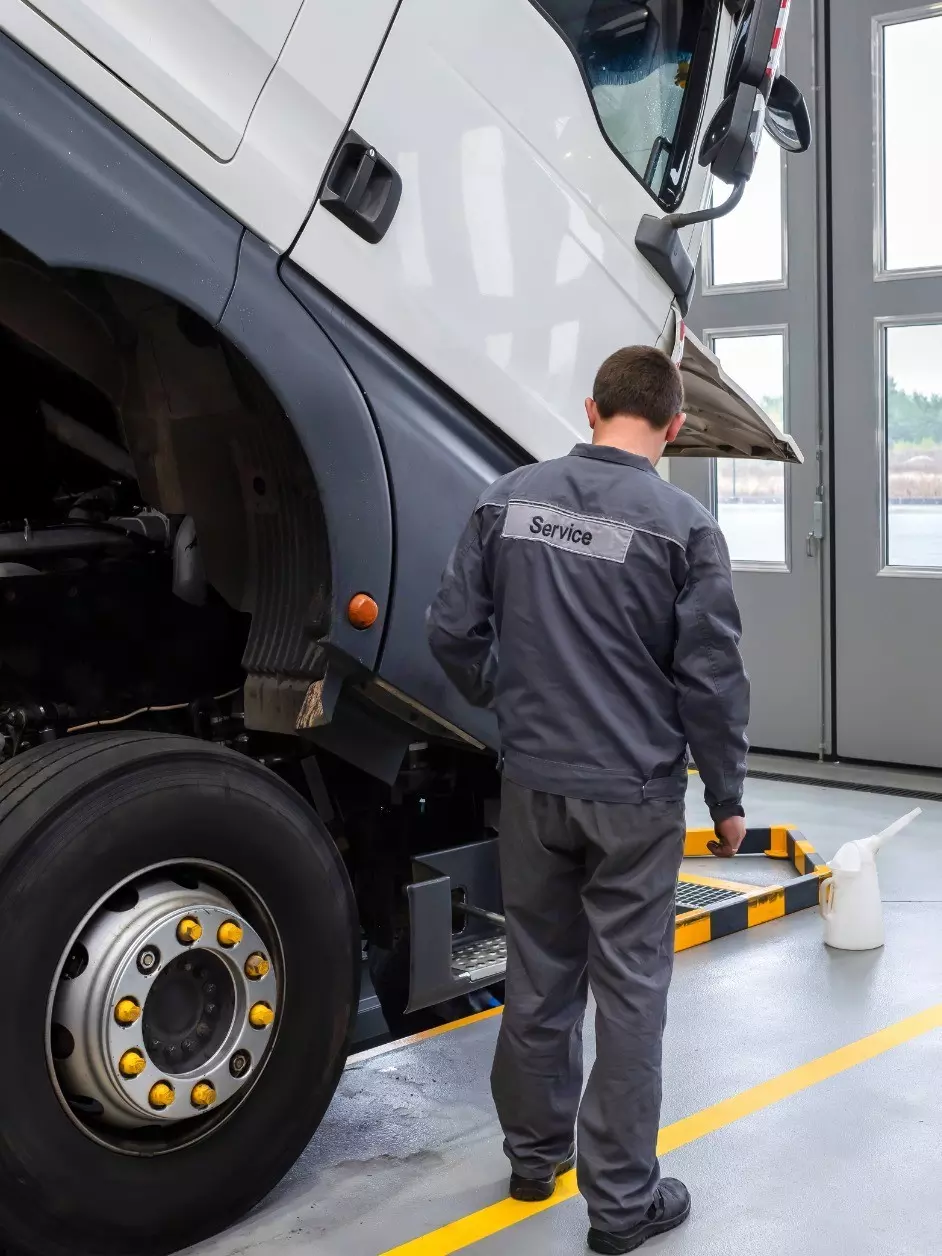How long does a paint job last on a commercial vehicle? Find out how long a paint job typically lasts on a commercial vehicle.
Explore factors that influence paint durability, such as exposure to weather, vehicle usage, and maintenance practices. Ensure your fleet remains visually appealing and well-protected with insights on paint longevity.
How Long Does A Paint Job last On A Commercial Vehicle?
The answer to this question depends on a multitude of factors, including the quality of the paint used, types of environment the vehicle is exposed to, and how well the vehicle is maintained. However, on average, a professionally done paint job can last approximately 10 years or so. Just bear in mind that this is not set in stone as some may require a fresh coating every five to ten years.
It's important to seek professional services from experienced and reliable painting contractors. While the initial cost may be slightly high, professional services guarantee a longer-lasting finish, saving cost and time in the long-run.
The Different Types Of Car Paint
Solid car paint, also known as single-stage paint, is a straightforward option that provides a clean and classic look. Its simplicity often makes it more affordable than other types of car paint.
While solid car paint is durable and resistant to minor scratches and chips, its lifespan largely depends on regular maintenance and protection from harsh weather conditions. With proper care, including regular washing and waxing, solid car paint can maintain its luster and protect the vehicle's surface for many years.
Metallic car paint contains small metallic flakes mixed into the paint, giving the vehicle a shimmering finish that changes appearance based on light and viewing angle. This type of paint is known for its durability and resistance to fading and weathering.
The metallic particles help protect the paint from UV rays and minor abrasions. When well-maintained, metallic car paint can last for a long time, retaining its vibrant and reflective qualities. Regular polishing helps maintain the shine and extend the lifespan of the paint.
Pearlescent Car Paint:
Pearlescent car paint, also known as pearl or mica paint, includes special pigments that create a lustrous, multi-dimensional effect. This paint type offers a unique and eye-catching finish that changes color and depth under different lighting conditions.
Pearlescent paint is typically more durable than standard solid paints due to its layered application process, which enhances its resistance to UV rays and environmental contaminants. With proper care, such as regular washing and occasional polishing, pearlescent car paint can maintain its stunning appearance for many years, making it a long-lasting option.
Matte car paint provides a non-reflective, flat finish that gives vehicles a distinctive and modern look. Unlike glossy finishes, matte paint is more prone to showing marks and requires specialised cleaning products to avoid damage.
Despite these challenges, matte paint can be quite durable when properly cared for. It's resistant to minor scratches and chips due to its textured surface. To ensure longevity, owners must adhere to a strict maintenance routine, avoiding automated car washes and using products specifically designed for matte finishes. With diligent care, matte car paint can remain striking and durable over time.

Tips To Increase Car Paint Lifespan
How can the longevity of a commercial vehicle's paint job be extended? Several important tips may help achieve this. Frequent washing helps remove dirt, grime, and chemical residues that degrade the paint. Be sure to use a gentle car detergent to avoid scratching the surface.
Waxing also provides a protective layer against environmental elements, preventing damage from rain, bird droppings, and tree sap. Additionally, parking the vehicle in a garage or shaded area minimises exposure to the sun's UV rays, which can cause the paint to fade and crack over time.
Using a high-quality car cover can also provide extra protection for vehicles parked outside. Finally, regular inspections for chips and scratches followed by prompt repair can prevent more extensive damage to the paintwork. These combined efforts can significantly extend the life and appearance of the vehicle’s paint.
Solvent vs Waterbased Car Paint
Choosing between solvent and water-based paints is essential when considering a commercial vehicle's paint job. Both types have their own advantages and disadvantages, making the decision quite important.
Solvent-based paints have long been the industry standard due to their exceptional depth of colour and durability. They are known for providing a rich, long-lasting finish that can withstand harsh weather conditions and daily wear and tear.

However, they release volatile organic compounds (VOCs), which are harmful to the environment. These VOCs contribute to air pollution and have a negative impact on both human health and the planet.
On the other hand, water-based paints are a more eco-friendly option. They emit fewer VOCs, making them a safer choice for the environment and for people working with the paint. Despite being more environmentally friendly, water-based paints can produce similar quality finishes to those achieved with solvent-based paints.
They offer decent durability and colour depth, though they may sometimes need a bit more care and maintenance to keep them looking their best.
In conclusion, the choice between solvent and water-based paints boils down to balancing environmental considerations with the desired durability and finish. For those prioritising eco-friendliness, water-based paints are the way to go. However, if ultimate durability and rich colour are essential, solvent-based paints might still be the preferred choice.
Factors That Affect Car Paint Lifespan
The lifespan of car paint is significantly influenced by the quality of the paint itself. Higher-quality paints often contain better pigments, binders, and additives that enhance durability and resistance to fading, chipping, and other forms of degradation. Premium paints may also have more advanced formulations that offer superior protection against UV rays, moisture, and chemicals, thereby prolonging the paint's lifespan.
Environmental Conditions
Environmental factors play a crucial role in determining the longevity of car paint. Prolonged exposure to sunlight and UV radiation can cause paint to fade and degrade over time. Additionally, harsh weather conditions such as extreme temperatures, acid rain, and salt from coastal or icy environments can accelerate the deterioration of paint. Pollutants and contaminants in the air can also adhere to the paint surface, leading to oxidation and corrosion if not properly cleaned.

Common Commercial Vehicle Paint Problems
Commercial vehicles often face a range of paint problems due to their extensive use and exposure to harsh conditions:
Fading and Oxidation: Prolonged UV exposure causes the paint to lose its shine and color.
Chipping and Peeling: Road debris and rough usage lead to paint chipping, exposing metal and potential rust.
Rust and Corrosion: Common in humid or coastal areas and where road salt is used, causing severe structural damage.
Scratches and Abrasions: Frequent from daily operations in high-traffic areas.
Addressing these problems requires regular maintenance, protective coatings, and timely repairs to extend the vehicle's paint lifespan.
Contact us today on 07931 699968 for trusted commercial vehicle painting in Doncaster and Scunthorpe . We are your first choice for commercial vehicle repainting services.
